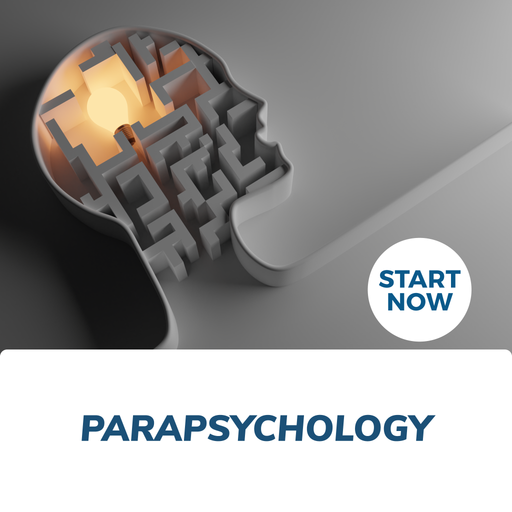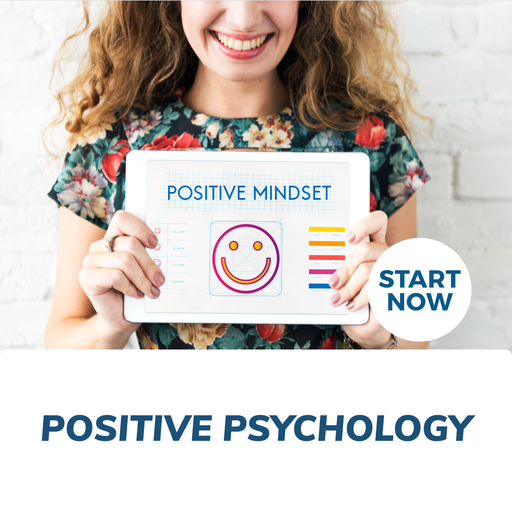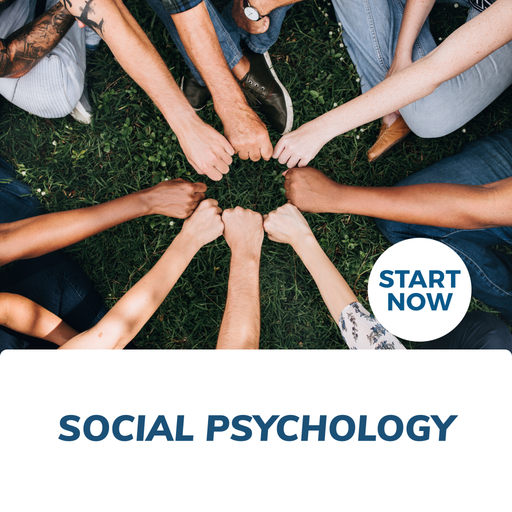Social Science Courses
-
 Save 50%
Save %
Original price USD $399Original price $399 - Original price $399Original price USD $399Current price USD $199USD $199 - USD $199Current price USD $199| /
Save 50%
Save %
Original price USD $399Original price $399 - Original price $399Original price USD $399Current price USD $199USD $199 - USD $199Current price USD $199| /Parapsychology Online Certificate Course
"I am A Pastor of spiritual warfare I found this course very educational and recommend to get a better understanding of Parapsychology" - Clay W. V...
View full details3 DAY SALE - ENDS 17 APRIL -
 Save 38%
Save %
Original price USD $399Original price $399 - Original price $399Original price USD $399Current price USD $249USD $249 - USD $249Current price USD $249| /
Save 38%
Save %
Original price USD $399Original price $399 - Original price $399Original price USD $399Current price USD $249USD $249 - USD $249Current price USD $249| /Sports Psychology Online Certificate Course
"It was well worth the price I paid for it. If you are a Psychologist or a sports practitioner, you should look into this course." - Gerby S. Verif...
View full details3 DAY SALE - ENDS 17 APRIL -
 Save 25%
Save %
Original price USD $399Original price $399 - Original price $399Original price USD $399Current price USD $299USD $299 - USD $299Current price USD $299| /
Save 25%
Save %
Original price USD $399Original price $399 - Original price $399Original price USD $399Current price USD $299USD $299 - USD $299Current price USD $299| /Freelance Writer Business Online Certificate Course
"This course helped me a lot on how to handle my career the correct way" - Vanessa B. Verified Buyer This Freelance Writing Certificate Online cou...
View full details3 DAY SALE - ENDS 17 APRIL -
 Save 25%
Save %
Original price USD $399Original price $399 - Original price $399Original price USD $399Current price USD $299USD $299 - USD $299Current price USD $299| /
Save 25%
Save %
Original price USD $399Original price $399 - Original price $399Original price USD $399Current price USD $299USD $299 - USD $299Current price USD $299| /Philosophy Online Certificate Course
"I had a great experience with this course. It was very informative and comprehensive. I highly recommend this course for anyone interested in Phil...
View full details3 DAY SALE - ENDS 17 APRIL -
 Save 25%
Save %
Original price USD $399Original price $399 - Original price $399Original price USD $399Current price USD $299USD $299 - USD $299Current price USD $299| /
Save 25%
Save %
Original price USD $399Original price $399 - Original price $399Original price USD $399Current price USD $299USD $299 - USD $299Current price USD $299| /Positive Psychology Online Certificate Course
"I am so glad that I took this course because it has really helped me understand myself and why certain things affect me the way they do." - Peter ...
View full details3 DAY SALE - ENDS 17 APRIL -
 Save 25%
Save %
Original price USD $399Original price $399 - Original price $399Original price USD $399Current price USD $299USD $299 - USD $299Current price USD $299| /
Save 25%
Save %
Original price USD $399Original price $399 - Original price $399Original price USD $399Current price USD $299USD $299 - USD $299Current price USD $299| /Psychoanalysis Online Certificate Course
"This course helped me move forward in my career as a Psychoanalyst" - Evan Y. Verified Buyer With this Psychoanalysis course, you’ll learn about ...
View full details3 DAY SALE - ENDS 17 APRIL -
 Save 25%
Save %
Original price USD $399Original price $399 - Original price $399Original price USD $399Current price USD $299USD $299 - USD $299Current price USD $299| /
Save 25%
Save %
Original price USD $399Original price $399 - Original price $399Original price USD $399Current price USD $299USD $299 - USD $299Current price USD $299| /Psychology of Success Online Certificate Course
"Great course with a lot of actionable insights. I have purchase many courses and I have to say I have learned the most from this course." - Carlo ...
View full details3 DAY SALE - ENDS 17 APRIL -
 Save 25%
Save %
Original price USD $399Original price $399 - Original price $399Original price USD $399Current price USD $299USD $299 - USD $299Current price USD $299| /
Save 25%
Save %
Original price USD $399Original price $399 - Original price $399Original price USD $399Current price USD $299USD $299 - USD $299Current price USD $299| /Relationship Psychology Online Certificate Course
"An informative course that covers the art of relationships from A to Z. I would recommend this course to anyone who is looking to learn more about...
View full details3 DAY SALE - ENDS 17 APRIL -
 Save 25%
Save %
Original price USD $399Original price $399 - Original price $399Original price USD $399Current price USD $299USD $299 - USD $299Current price USD $299| /
Save 25%
Save %
Original price USD $399Original price $399 - Original price $399Original price USD $399Current price USD $299USD $299 - USD $299Current price USD $299| /Counselling Skills Online Certificate Course
"I found the course very insightful, and it will be very useful in my job. I would highly recommend this course to anyone looking to get a counselo...
View full details3 DAY SALE - ENDS 17 APRIL -
 Save 25%
Save %
Original price USD $399Original price $399 - Original price $399Original price USD $399Current price USD $299USD $299 - USD $299Current price USD $299| /
Save 25%
Save %
Original price USD $399Original price $399 - Original price $399Original price USD $399Current price USD $299USD $299 - USD $299Current price USD $299| /Couples and Family Therapy Online Certificate Course
"This course was very insightful. A good approach to couples and family counselling" - Aaron V. Verified Buyer This Family Therapy Training Online...
View full details3 DAY SALE - ENDS 17 APRIL -
 Save 25%
Save %
Original price USD $399Original price $399 - Original price $399Original price USD $399Current price USD $299USD $299 - USD $299Current price USD $299| /
Save 25%
Save %
Original price USD $399Original price $399 - Original price $399Original price USD $399Current price USD $299USD $299 - USD $299Current price USD $299| /Social Psychology Online Certificate Course
"This course was engaging and interesting. The course material was well developed and very informative. " - Mateo P. Verified Buyer The Social Psy...
View full details3 DAY SALE - ENDS 17 APRIL -
 Save 25%
Save %
Original price USD $399Original price $399 - Original price $399Original price USD $399Current price USD $299USD $299 - USD $299Current price USD $299| /
Save 25%
Save %
Original price USD $399Original price $399 - Original price $399Original price USD $399Current price USD $299USD $299 - USD $299Current price USD $299| /Safeguarding Online Certificate Course
"This course is a great resource for any individual working with others in any capacity and is a must for any business or organization looking to d...
View full details3 DAY SALE - ENDS 17 APRIL -
 Save 56%
Save %
Original price USD $798Original price $798 - Original price $798Original price USD $798Current price USD $349USD $349 - USD $349Current price USD $349| /
Save 56%
Save %
Original price USD $798Original price $798 - Original price $798Original price USD $798Current price USD $349USD $349 - USD $349Current price USD $349| /Freelance Writer Business Online Bundle, 2 Certificate Courses
Build Your Own Business As A Freelance Writer
3 DAY SALE - ENDS 17 APRIL -
 Save 56%
Save %
Original price USD $798Original price $798 - Original price $798Original price USD $798Current price USD $349USD $349 - USD $349Current price USD $349| /
Save 56%
Save %
Original price USD $798Original price $798 - Original price $798Original price USD $798Current price USD $349USD $349 - USD $349Current price USD $349| /Philosophy Online Bundle, 2 Certificate Courses
Learn Different Ways To Understand Philosophy
3 DAY SALE - ENDS 17 APRIL -
 Save 56%
Save %
Original price USD $798Original price $798 - Original price $798Original price USD $798Current price USD $349USD $349 - USD $349Current price USD $349| /
Save 56%
Save %
Original price USD $798Original price $798 - Original price $798Original price USD $798Current price USD $349USD $349 - USD $349Current price USD $349| /Positive Psychology Online Bundle, 2 Certificate Courses
Learn Take A Mindful Or Spiritual Approach To Our Lives
3 DAY SALE - ENDS 17 APRIL -
 Save 56%
Save %
Original price USD $798Original price $798 - Original price $798Original price USD $798Current price USD $349USD $349 - USD $349Current price USD $349| /
Save 56%
Save %
Original price USD $798Original price $798 - Original price $798Original price USD $798Current price USD $349USD $349 - USD $349Current price USD $349| /Psychoanalysis Online Bundle, 2 Certificate Courses
Learn The Common Elements Of Psychotherapy
3 DAY SALE - ENDS 17 APRIL -
 Save 56%
Save %
Original price USD $798Original price $798 - Original price $798Original price USD $798Current price USD $349USD $349 - USD $349Current price USD $349| /
Save 56%
Save %
Original price USD $798Original price $798 - Original price $798Original price USD $798Current price USD $349USD $349 - USD $349Current price USD $349| /Psychology of Success Online Bundle, 2 Certificate Courses
Learn How To Find Success In Your Own Life
3 DAY SALE - ENDS 17 APRIL -
 Save 56%
Save %
Original price USD $798Original price $798 - Original price $798Original price USD $798Current price USD $349USD $349 - USD $349Current price USD $349| /
Save 56%
Save %
Original price USD $798Original price $798 - Original price $798Original price USD $798Current price USD $349USD $349 - USD $349Current price USD $349| /Relationship Psychology Online Bundle, 2 Certificate Courses
The Most Comprehensive Relationship and Counselling Bundle
3 DAY SALE - ENDS 17 APRIL -
 Save 56%
Save %
Original price USD $798Original price $798 - Original price $798Original price USD $798Current price USD $349USD $349 - USD $349Current price USD $349| /
Save 56%
Save %
Original price USD $798Original price $798 - Original price $798Original price USD $798Current price USD $349USD $349 - USD $349Current price USD $349| /Counselling Online Bundle, 2 Certificate Courses
Learn How To Help Individuals Find Their Own Answers
3 DAY SALE - ENDS 17 APRIL -
 Save 56%
Save %
Original price USD $798Original price $798 - Original price $798Original price USD $798Current price USD $349USD $349 - USD $349Current price USD $349| /
Save 56%
Save %
Original price USD $798Original price $798 - Original price $798Original price USD $798Current price USD $349USD $349 - USD $349Current price USD $349| /Couples and Family Therapy Online Bundle, 2 Certificate Courses
Understanding Life Through Couples And Family Therapy
3 DAY SALE - ENDS 17 APRIL -
 Save 67%
Save %
Original price USD $1,197Original price $1,197 - Original price $1,197Original price USD $1,197Current price USD $399USD $399 - USD $399Current price USD $399| /
Save 67%
Save %
Original price USD $1,197Original price $1,197 - Original price $1,197Original price USD $1,197Current price USD $399USD $399 - USD $399Current price USD $399| /Freelance Writer Business Online Bundle, 3 Certificate Courses
Build Your Own Business As A Freelance Writer
3 DAY SALE - ENDS 17 APRIL -
 Save 67%
Save %
Original price USD $1,197Original price $1,197 - Original price $1,197Original price USD $1,197Current price USD $399USD $399 - USD $399Current price USD $399| /
Save 67%
Save %
Original price USD $1,197Original price $1,197 - Original price $1,197Original price USD $1,197Current price USD $399USD $399 - USD $399Current price USD $399| /Philosophy Online Bundle, 3 Certificate Courses
Learn Different Ways To Understand Philosophy
3 DAY SALE - ENDS 17 APRIL -
 Save 67%
Save %
Original price USD $1,197Original price $1,197 - Original price $1,197Original price USD $1,197Current price USD $399USD $399 - USD $399Current price USD $399| /
Save 67%
Save %
Original price USD $1,197Original price $1,197 - Original price $1,197Original price USD $1,197Current price USD $399USD $399 - USD $399Current price USD $399| /Positive Psychology Online Bundle, 3 Certificate Courses
Learn Take A Mindful Or Spiritual Approach To Our Lives
3 DAY SALE - ENDS 17 APRIL -
 Save 67%
Save %
Original price USD $1,197Original price $1,197 - Original price $1,197Original price USD $1,197Current price USD $399USD $399 - USD $399Current price USD $399| /
Save 67%
Save %
Original price USD $1,197Original price $1,197 - Original price $1,197Original price USD $1,197Current price USD $399USD $399 - USD $399Current price USD $399| /Psychoanalysis Online Bundle, 3 Certificate Courses
Learn The Common Elements Of Psychotherapy
3 DAY SALE - ENDS 17 APRIL























